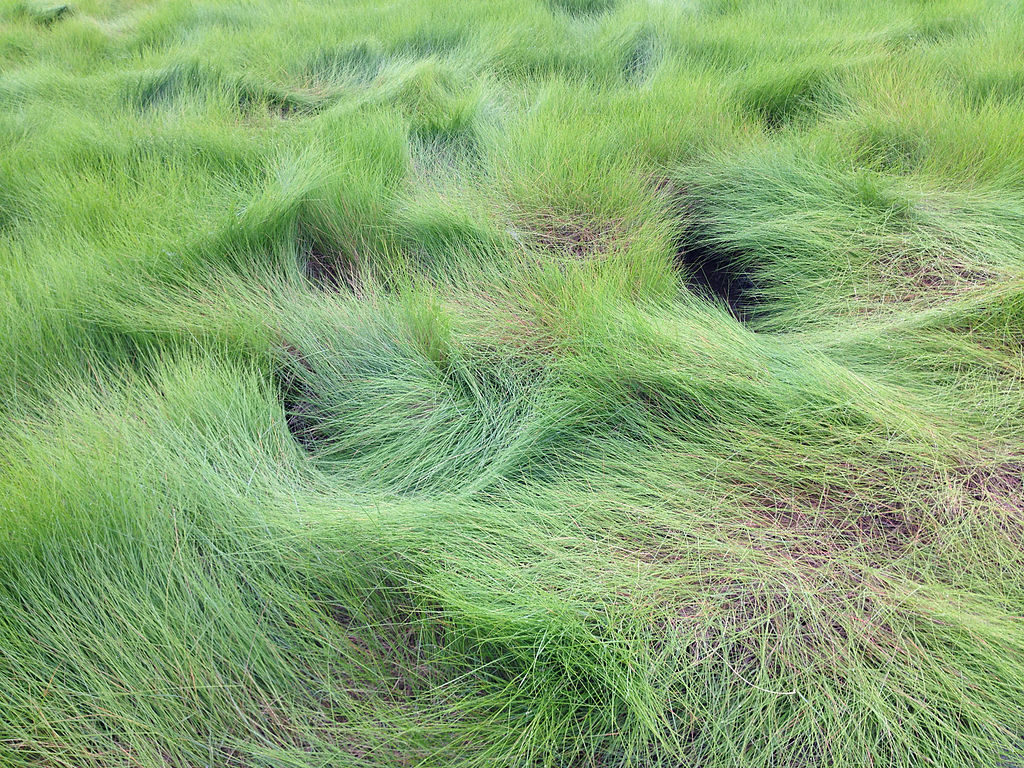Ecology might seem like one of the more esoteric terms in environmental studies. From the Greek for “study of home,” the word is used in a range of disciplines to refer, sometimes quite generally, to the study of organisms and their connections with their physical environments.
For the AP Biology students at Cape Elizabeth High School last week, ecology took on a very specific meaning. On a muggy Monday afternoon, twenty-odd high school juniors and I set out through the marsh to explore some of the organisms in their very own backyard, as well as the relationships that connect them.
The salt marsh provided a great first stop. Here reside a number of specialized organisms adapted to the regular physical barrage of high tides. Both salt hay and smooth cordgrass possess unique adaptations that allow them to extract freshwater and protect themselves from the salty tide.

With no competition from freshwater-loving shrubs or trees, wetland plants form a highly-productive basis for the food chain, generating new growth at a rate comparable to that of a tropical rainforest. At the end of its lifecycle, the tide carries decomposing grass down the Spurwink river to feed fish, crustaceans, and other organisms that make this estuary their home.
Following the Cross Town Trail up along Gull Crest, our class encountered examples of ecological systems reacting to disturbance. Like most of New England, many areas of Cape Elizabeth were cleared at one point or another over the past couple hundred years. A quick survey of tree species – oak and maple hardwood canopy, opportunistic young white pines filling in the gaps – indicated active succession, or the process by which a forest evolves towards a final, equilibrium state.
On the way back to the classroom, we paused to reflect on our own connections with ecology. A locally-caught lobster, a locally-harvested tomato, or a blackberry found on the side of the trail: each a reminder of our human connections to the land we live on and the organisms we share it with.
– Philip Mathieu, CELT Education Coordinator
